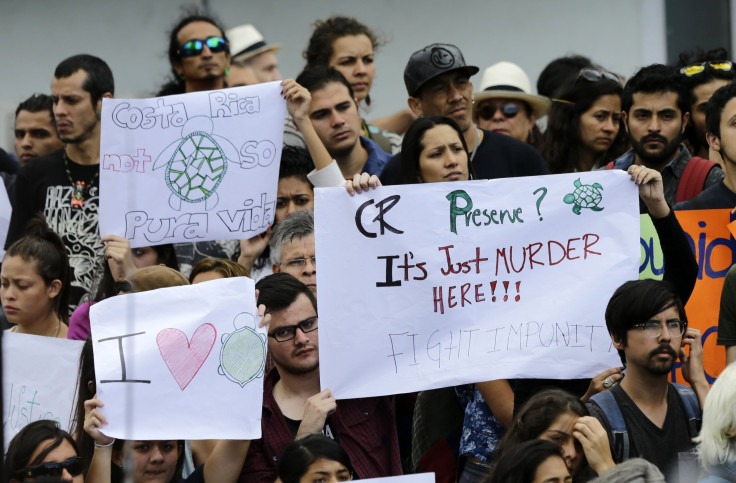Honduras 'Most Dangerous Country' For Environmental Activists: Report

The past year witnessed a significant rise in violence against environmental activists, with 116 deaths being reported globally, according to a report released Monday. Nearly three-quarters of those killings occurred in Central and South America, where indigenous groups are increasingly being targeted by a nexus of “large landowners, business interests, political actors and agents of organized crime.”
Between 2002 and 2014, there were 111 deaths recorded in Honduras -- the highest number of killings per capita, according to the report, published by campaign group Global Witness. The report also found that over 90 percent of the killings of, and abuses against, human rights activists, which include environmental activists, in Honduras still remain unresolved. In the same period, Brazil saw 477 environmental activists being killed, of which 29 were killed in 2014 alone.
“In Honduras and across the world environmental defenders are being shot dead in broad daylight, kidnapped, threatened, or tried as terrorists for standing in the way of so-called ‘development’,” Billy Kyte, a campaigner at Global Witness, said, in a statement. “The true authors of these crimes -- a powerful nexus of corporate and state interests -- are escaping unpunished. Urgent action is needed to protect citizens and bring perpetrators to justice.”
Members of indigenous groups accounted for 40 percent of all activists' deaths last year. “Many defenders live in remote, poor communities with limited access to communications, the media and avenues to pursue justice, putting them at greater risk,” the organization said, in its report.
Citing instances of several indigenous activists who had been killed in broad daylight in Colombia, Brazil and the Philippines, the report urged the world's governments to give “specific attention and protection” to defenders of environmental and land rights.
“Here the police, the military, prosecutors, judges, all of them are ready to defend the owners of the big farms, while we are the ones who are dying,” a member of the Panama community from the Bajo Aguan valley in Honduras told the report’s authors.
“Disputes over the ownership, control and use of land was an underlying factor in killings of environmental and land defenders in nearly all documented cases in 2014,” the report said. “There was a rise in killings related to hydropower projects … many of the killings in Honduras and other Central American countries are a result of the struggle against hydropower dams and their impacts on local communities.”
The organization also called on governments and the international community to monitor, investigate and punish crimes against environmental activists, and asked the Honduran government to address abuses in an upcoming review of its human rights record at the United Nations Human Rights Council.
© Copyright IBTimes 2025. All rights reserved.






















